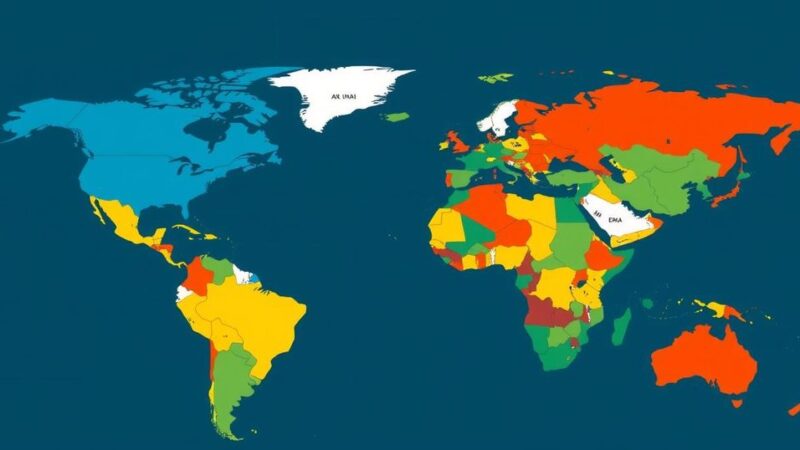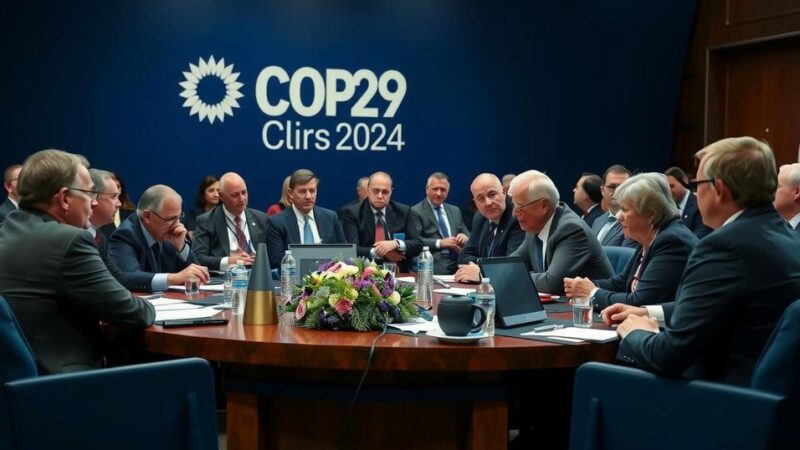The Hawaii Supreme Court ruled that AIG subsidiaries do not need to defend a Sunoco LP unit against climate change lawsuits, asserting that greenhouse gases are considered pollutants under their policies. This ruling occurred in the case Aloha Petroleum Ltd. v. National Union Fire Insurance Co., which involves claims from Honolulu and Maui counties alleging property damage due to climate change caused by fossil fuel emissions.
On Monday, the Hawaii Supreme Court ruled that subsidiaries of American International Group Inc. (AIG) are not required to defend a Honolulu-based Sunoco LP subsidiary against two climate change-related lawsuits. The court made this decision based on the classification of greenhouse gases as pollutants, which are excluded under the insurance policies held by AIG units. It emphasized the detrimental effects these gases have on the planet’s climate, asserting that they contribute to instability affecting future generations. The case detailed is Aloha Petroleum Ltd. v. National Union Fire Insurance Co. of Pittsburgh, Pa. et al. The ruling further indicated that Aloha Petroleum’s allegedly reckless actions concerning its fossil fuel marketing merited a reevaluation of the insurers’ obligations to provide defense. In this legal context, Aloha operates under the assumption that it is entitled to coverage for lawsuits initiated by Honolulu and Maui counties. The lawsuits allege that oil companies, including Aloha, had knowledge since the 1960s that combustion of fossil fuels would lead to climate change and have caused property damage and increased costs in adapting to severe weather events. AIG’s subsidiaries countered that they were not obligated to defend against these claims since Aloha knowingly marketed fossil fuels, thus triggering pollution exclusions in their policies. Despite requests for commentary from representatives of the involved parties, none have been provided at this time.
The legal landscape surrounding climate change litigation is evolving, particularly as it pertains to the insurance industry. Insurers are increasingly facing lawsuits tied to the environmental impacts of fossil fuel emissions. In this particular case, Aloha Petroleum has sought to compel its insurers, National Union Fire Insurance Company and American Home Assurance Company, to defend against accusations that it misrepresented the risks of fossil fuel consumption. The Hawaii Supreme Court’s ruling reflects a significant interpretation of insurance policy exclusions concerning pollutants and the definitions of liability in the context of climate change damages. As municipalities like Honolulu and Maui take action against companies they believe have contributed to climate change, the stakes for insurers and policyholders are considerable.
The Hawaii Supreme Court’s verdict underscores the complexities associated with climate change litigation and its intersection with insurance obligations. The ruling clarifies that AIG units are not required to defend against climate-related lawsuits due to the pollution exclusion synonymous with greenhouse gases. This landmark decision may set a precedent for how similar cases are approached in the future, particularly concerning the responsibilities of companies and their insurers in the face of environmental accountability.
Original Source: www.businessinsurance.com






